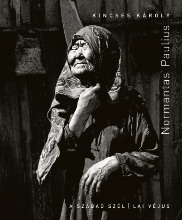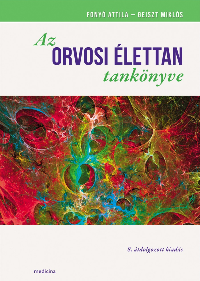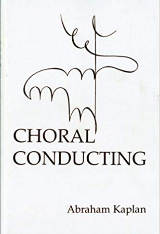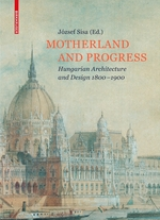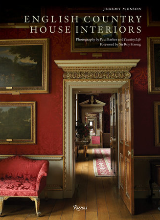Könyvajánlók
The visual history of type
Paul McNeil
The Visual History of Type is a comprehensive, detailed survey of the major typefaces produced since the advent of printing with movable type in the mid-fifteenth century to the present day. Arranged chronologically to provide context, more than 320 typefaces are displayed in the form of their original type specimens or earliest printing. Each entry is supported by a brief history and description of key characteristics of the typeface.
This book will be the definitive publication in its field, appealing to graphic designers, educators, historians and design students. It will also be a significant resource for professional type designers and students of type....
tovább >>>
A test diadala : Michelangelo és a 16. századi itáliai rajzművészet
[a kiállítást rend.] Kárpáti Zoltán
„Michelangelo alighanem azért jött a világra, mert Isten példát akart mutatni általa a művészeknek” – írta kortársa és barátja, Giorgio Vasari, akinek köszönhetően a mester nevével elválaszthatatlanul összeforrt az „isteni” jelző...
tovább >>>
Normantas Paulius : ba szabad szél = lai véjus
Kincses Károly
Normantas Paulius (Kalniskiu, 1948. június 8. – Nyíregyháza, 2017. január 7.) litván származású, de évtizedek óta haláláig Magyarországhoz is hazájaként kötődő utazó, költő és fotóművész szinte minden szempontból szabálytalan életutat futott be, és igazán öntörvényű, nehezen beskatulyázható egyéniség volt.
Kincses Károly, a kötet szerzője Normantas életpályájának bemutatásában e nehezen megfogható karakter megragadására, a különös személyiség felvázolására és érzékeltetésére teszi a hangsúlyt.
Kincses rendhagyó életrajza így – Szarka Klára szavaival - kevésbé az alkotó vizuális életművének, képi és tárgyi hagyatékának, irodalmi teljesítményének tudományosabb, összehasonlító jellegű értékelése, sokkal inkább e különös karakter bemutatása. Normantas Paulius mint a vágyott (belső) szabadság megtestesítője értékelődik igazán.
tovább >>>
A radiológia tankönyve
Palkó András (szerk.)
tovább >>>
Szoptatás és humán laktáció
Wambach, Karen - Riordan, Jan
tovább >>>
Gyógynövénytől a gyógyításig : farmakognózia, fitokémia, fitoterápia, biotechnológia
Szőke Éva (főszerkesztő)
A könyv elengedhetetlen ismeretanyagot nyújt a gyógyszerészhallgatóknak, gyógyszerészeknek, a gyógynövény-terápia iránt érdeklődő szakembereknek.
tovább >>>
Az orvosi élettan tankönyve
Fonyó Attila - Geiszt Miklós
A könyv megközelítése az első kiadástól kezdődően sejtélettani és
molekuláris szemléletű, és ez a 8. kiadásra is jellemző, e mellett
azonban több változtatást is tartalmaz. Az egyes fejezetek átdolgozása
során igyekeztünk olyan új kutatási eredményeket is a szövegbe foglalni,
amelyek már „kiállták az idő próbáját” és amelyek segíthetik a
különböző szervek, szervrendszerek működésének megértését. Az előző
kiadáshoz képest hangsúlyosabban emeltük ki a klinikai vonatkozásokat,
ami reményeink szerint még érdekesebbé és hasznosabbá teszi az olvasók
számára a könyvet. Az új kiadás számos új ábrát is tartalmaz, és több
korábbi ábrát is módosítottuk. Úgy gondoljuk, hogy a szöveget és az
ábrákat érintő változtatások egyaránt megkönnyítik az élettani
folyamatok megértését.
Ez a könyv elsősorban orvostan- és
fogorvostan-hallgatók számára íródott, azonban szívesen ajánljuk már
végzett orvosok számára is, akik szeretnék felfrissíteni orvosi
élettannal kapcsolatos ismereteiket, vagy olyan olvasóknak, akiket más
okból érdekel az emberi szervezet működése.
tovább >>>
Choral repertoire
Dennis Shrock
- - First comprehensive book on choral repertoire, bringing together information from a wide range of sources
- - Serves a variety of functions: textbook, programming guide, reference tool, and chronological overview
- - Promotes and preserves cultural masterpieces
tovább >>>
Choral conducting
Abraham Kaplan
Abraham Kaplan has created a brilliant and practical textbook for choral conducting teachers and students on the college or conservatory level. His manual allows the instructor to cover every aspect of conducting and rehearsal techniques while giving the student regular opportunities to conduct in the classroom. Following many of the exercises is a list of choral selections from the standard repertoire which the neophyte conductor may use to practice a particular technical problem within a musical context.
tovább >>>
Motherland and progress : Hungarian architecture and design, 1800-1900
József Sisa ed
In the 19th century Hungary witnessed unprecedented social, economic and cultural development. The country became an equal partner within the Dual Monarchy when the Austro-Hungarian Compromise of 1867 was concluded. Architecture and all forms of design flourished as never before. A distinctly Central European taste emerged, in which the artistic presence of the German-speaking lands was augmented by the influence of France and England. As this process unfolded, attempts were made to find a uniquely Hungarian form, based on motifs borrowed from peasant art as well as real (or fictitious) historical antecedents. "Motherland and Progress" – the motto of 19th-century Hungarian reformers – reflected the programme embraced by the country in its drive to define its identity and shape its future.
tovább >>>
Ann Getty : interior style
Diane Dorrans Saeks
The first-ever compilation of the luxurious interiors from the influential designer and philanthropist Ann Getty. For those who are passionate about fine interiors, the preservation of antiques, the highest level of craftsmanship, and respect for architectural integrity, this book offers an insider’s view of the exquisite designs of Ann Getty...
tovább >>>
English country house interiors
Jeremy Musson
A highly detailed look at the English country house interior, offering
unprecedented access to England’s finest rooms. In this splendid book,
renowned historian Jeremy Musson explores the interiors and decoration
of the great country houses of England, offering a brilliantly detailed
presentation of the epitome of style in each period of the country
house, including the great Jacobean manor house, the Georgian mansion,
and the Gothic Revival castle. For the first time, houses known
worldwide for their exquisite architecture and decoration--including
Wilton, Chatsworth, and Castle Howard--are seen in unprecedented detail.
With intimate views of fabric, gilding, carving, and furnishings, the
book will be a source of inspiration to interior designers, architects,
and home owners, and a must-have for anglophiles and historic house
enthusiasts.
The fifteen houses included represent the key periods in
the history of English country house decoration and cover the major
interior fashions and styles. Stunning new color photographs by Paul
Barker-who was given unparalleled access to the houses-offer readers new
insights into the enduring English country house style. Supplementing
these are unique black-and-white images from the archive of the esteemed
Country Life magazine...
tovább >>>
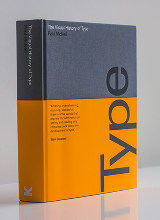
![[a kiállítást rend.] Kárpáti Zoltán: A test diadala : Michelangelo és a 16. századi itáliai rajzművészet](/upload/bookreview/1000/1494_src.png)
